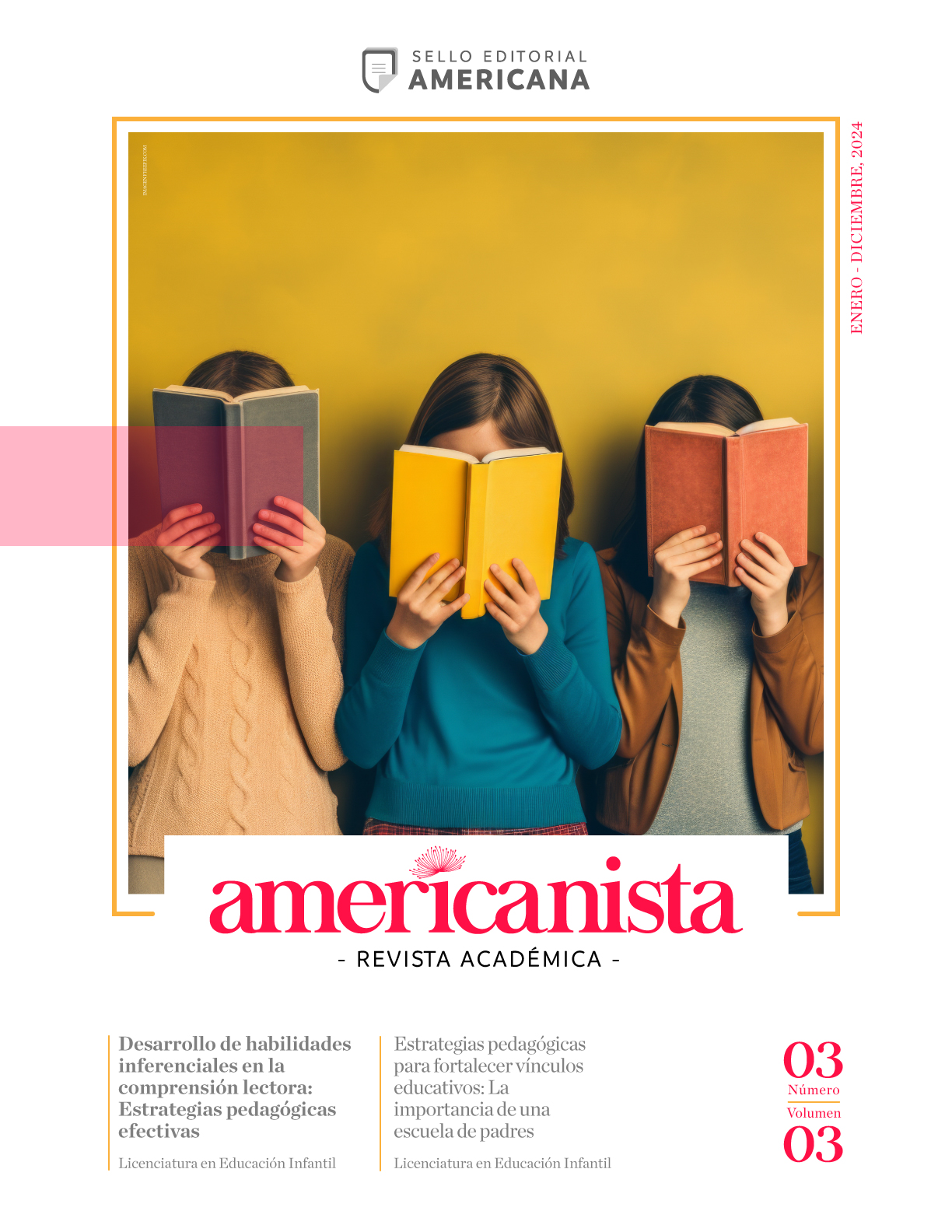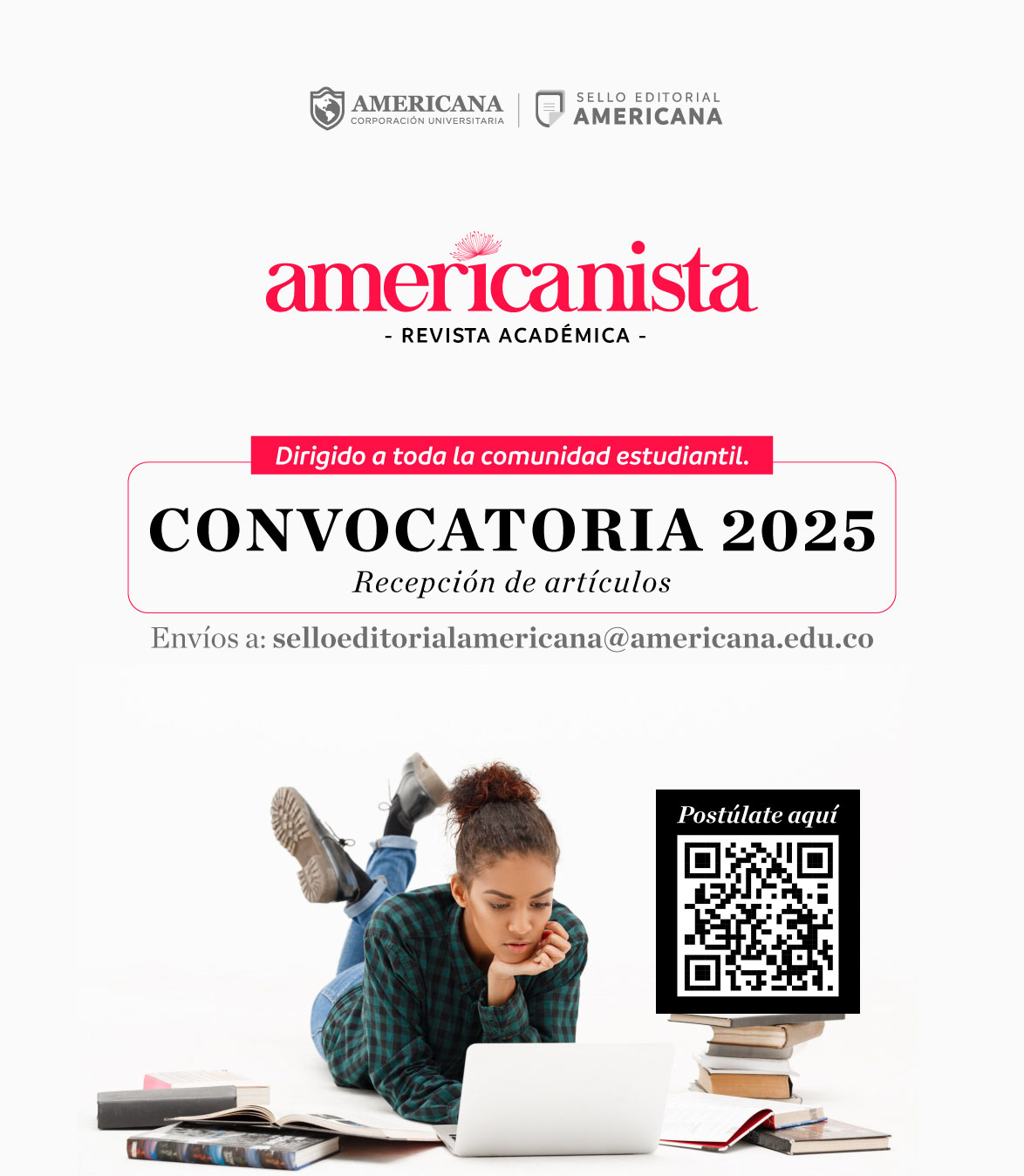State of the art of online learning communities
Keywords:
Self-learning, communities, education, virtualAbstract
The article delves into how online learning communities have evolved and the impact they have on education today. These communities are key to promoting collaborative learning in the digital world, offering flexibility and accessibility that we did not have before. Through a theoretical approach, their characteristics, benefits,
and challenges are analyzed, highlighting the essential nature of interaction among all those involved, learning through dialogue, and the use of information and communication technologies (ICT). All of this
has become even more relevant since the pandemic accelerated the adoption of virtual education. To
reach these conclusions, a large amount of academic literature was reviewed and analyzed. The findings
highlight how important it is to train teachers and develop strategies that truly improve educational quality
and collaborative learning. In summary, online learning communities have made a big difference in the
educational landscape by promoting inclusion, participation, and pedagogical innovation. However, there
are still challenges ahead, especially in terms of participant engagement and how to continue improving
educational models.
References
Aguilar M.J. (2020). Continuidad pedagógica en el nivel medio superior: acciones y reacciones ante la emergencia sanitaria. En J. Girón (Ed.), Educación y pandemia. Una visión académica (pp. 47-54). UNAM. https://www.iisue.unam.mx/investigacion/textos/educacion_pandemia.pdf
Beltrán, Y., Martínez, Y. & Torrado, O. (2015). Creación de una comunidad de aprendizaje: una experiencia de educación inclusiva en Colombia. Revista Encuentros, 13(2), pp.57-72. http://www.scielo.org.co/pdf/encu/v13n2/v13n2a04.pdf
Cadena-Chala, M.C. & Orcasitas-García, J.R. (2016). Comunidades de aprendizaje en el País Vasco: caracterización y organización escolar. Educación y Educadores, 19(3), 373-391. https://doi.org/10.5294/edu.2016.19.3.4
Finol de Franco, M. y Arrieta de UUzcátegui, X. (2021). Métodos de investigación cualitativa. Un análisis documental. Encuentro Educacional, 28(1), 9-28. https://doi.org/10.5281/zenodo.8169472
García García, M. Á., Muñoz-Repiso, A., García-Varcárcel, & Arévalo Duarte, M. A. (2022). Competencias digitales de los docentes en formación: dimensiones y componentes que promueven su desarrollo. Civilizar Ciencias Sociales y Humanas, 22(42). https://revistas.usergioarboleda.edu.co/index.php/ccsh/
article/view/Competencias-digitales-docentes-formacion
Guerrero Dávila, G. (2015). Metodología de la investigación. Grupo Editorial Patria. Guzmán, V. (2021). El método cualitativo y su aporte a la investigación en las ciencias sociales. Gestionar: Revista De Empresa Y Gobierno, 1(4), 19-31. https://doi.org/10.35622/j.rg.2021.04.002
Jiménez, A. y Rodríguez, M. (2016). Comunidades de Aprendizaje: propuesta de desarrollo y sostenibilidad desde la educación social en instituciones educativas. Cuestiones Pedagógicas, 25(1). http://institucional.
us.es/revistas/cuestiones/25/08_MI_25.pdf
Miranda, A. y Tirado, F. (2020). Las nuevas universidades: El fenómeno de comunidades de aprendizaje en línea. Revista de la educación superior, 41(164), 9-33. https://www.scielo.org.mx/scielo.php?pid=S0185-27602012000400001&script=sci_abstract
Ordoñez Olmedo, E. & Gutiérrez Martín, N. (2023). Comunidades de aprendizaje educativas: un enfoque Integral. Cuadernos de pensamiento 36, 225-249. https://revistas.fuesp.com/cpe/article/view/379
Peralta Ortiz, M. V., García-Herrera, D. G., & Mena-Clerque, S. E. (2021). Comunidades Virtuales de Aprendizaje y trabajo Cooperativo: Una experiencia innovadora en la escuela “Gabriela Mistral”. Revista Arbitrada Interdisciplinaria KOINONIA, 6(3). http://dx.doi.org/10.35381/r.k.v6i3.1315
Peterson-Ahmad, M. B., Pemberton, J. B., & Hovey, K. A. (2018). A virtual reality learning environment to enhance teacher preparation. Journal of Special Education Technology, 33(3), 165–174. https://
www.researchgate.net/publication/328608112_Virtual_Learning_Environments_for_Teacher_Preparation
Reyes Ruiz, L. & Carmona Alvarado, F. A. (2020). La investigación documental para la comprensión ontológica del objeto de estudio. Universidad Simón Bolívar. https://bonga.unisimon.edu.co/server/api/core/bitstreams/2af35a4b-2abf-4f78-a550-0a4e4764e674/content#:~:text=Su%20objetivo%20
principal%20es%20dirigir,dispersas%20(Barraza%2C%202018).
Sumba Arévalo, V. M. & Mejía Vera, J. G. (2021). Comunidades de aprendizaje: Una experiencia en y para la profesionalización docente en la Universidad Nacional de Educación-Ecuador. Revista de la Escuela de Ciencias de la Educación, 2(16). https://doi.org/10.35305/rece.v2i16.673
Stoll, L., Bolam, R., McMahon, Agnes & Wallace, M. (2006). Professional learning communities in online environments: A review of the literature. Journal of Educational Change, 7(4):221-258. DOI:10.1007/s10833-006-0001-8
Vega Lebrún, C.A., Sánchez Cuevas, M., Rosano ortega, G. & Amador Pérez, S.E. (2021). Competencias docentes, una innovación en ambientes virtuales de aprendizaje en educación superior. Apertura, 13(2),6-21. https://www.redalyc.org/journal/688/68869729001/html/
Zhang, Y. & Lin, C.H. (2019). Student interaction and the role of the teacher in a state virtual high school: what predicts online learning satisfaction? Technology Pedagogy and Education, 29(2):1-15. DOI:10.1080/1475939X.2019.1694061
Downloads
Published
Issue
Section
License
Copyright (c) 2024 Diana Carolina Charris Fontalvo, Cynthia Jhoana Chávez Mora, Anyely Maria Padilla Charris, Elayne Michel Giha Varela

This work is licensed under a Creative Commons Attribution-NonCommercial-ShareAlike 4.0 International License.




